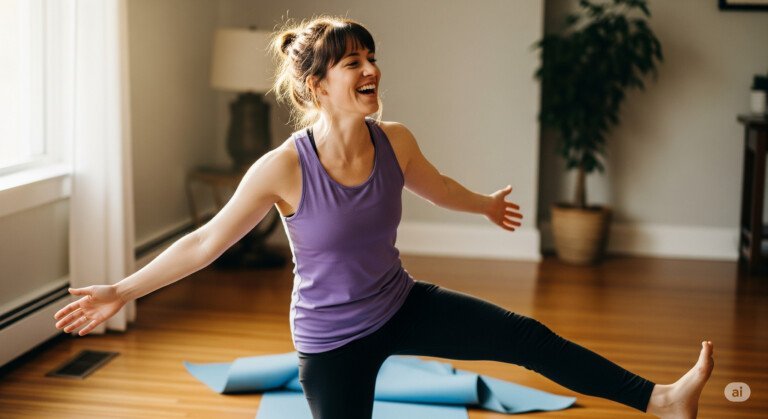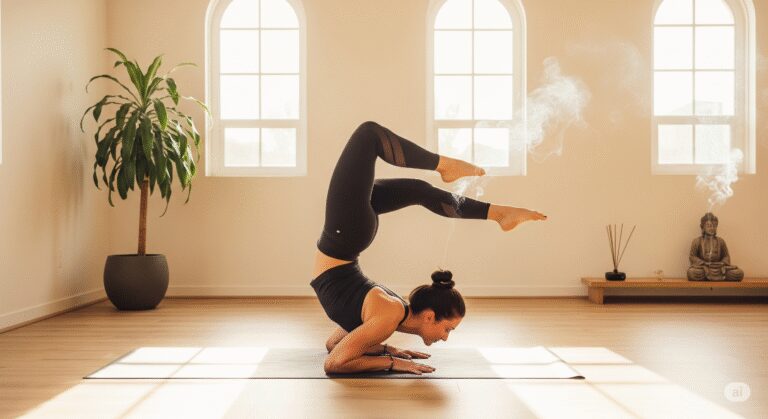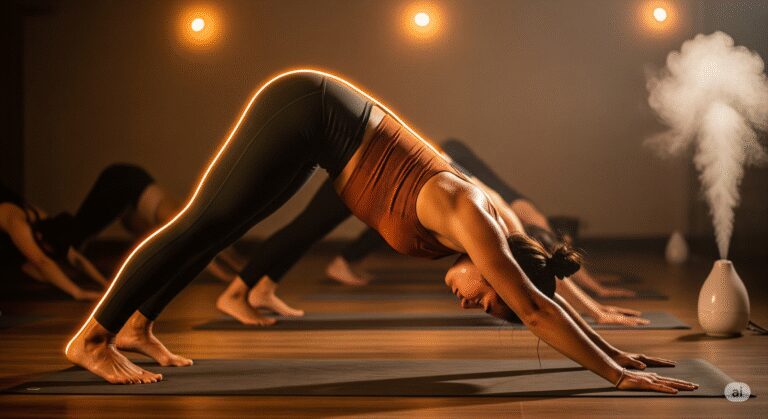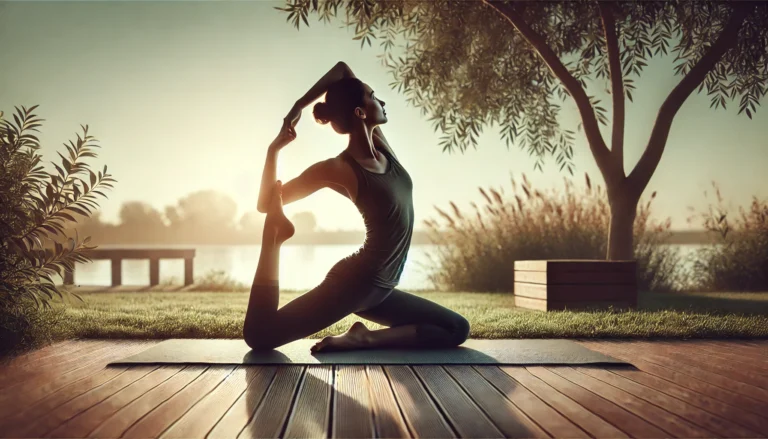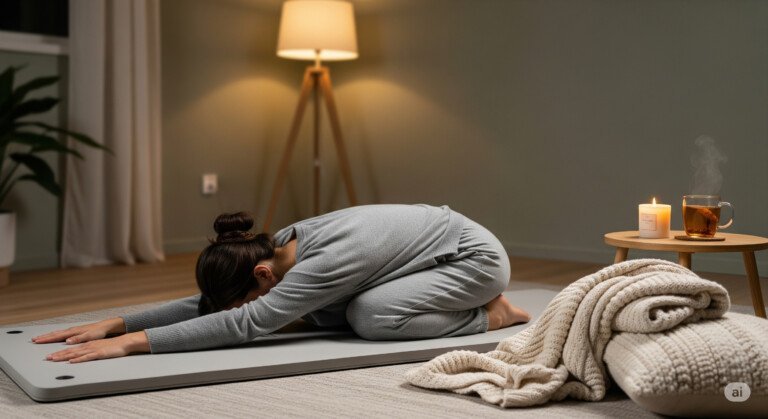Butterfly Yoga Pose: 9 Surprising Benefits for Flexibility
Butterfly Yoga Pose
The butterfly yoga pose, also known in Sanskrit as baddha konasana, is a beginner-friendly yoga posture loved for its deep stretching benefits. Whether you’re aiming for better flexibility, inner peace, or just some much-needed release in the inner thighs and hips, this pose has got your back.
This gentle hip opener yoga stretch mimics the fluttering of butterfly wings. It has become a go-to for yoga teachers across California—from Venice Beach to Berkeley studios—because it caters to all body types and age groups.
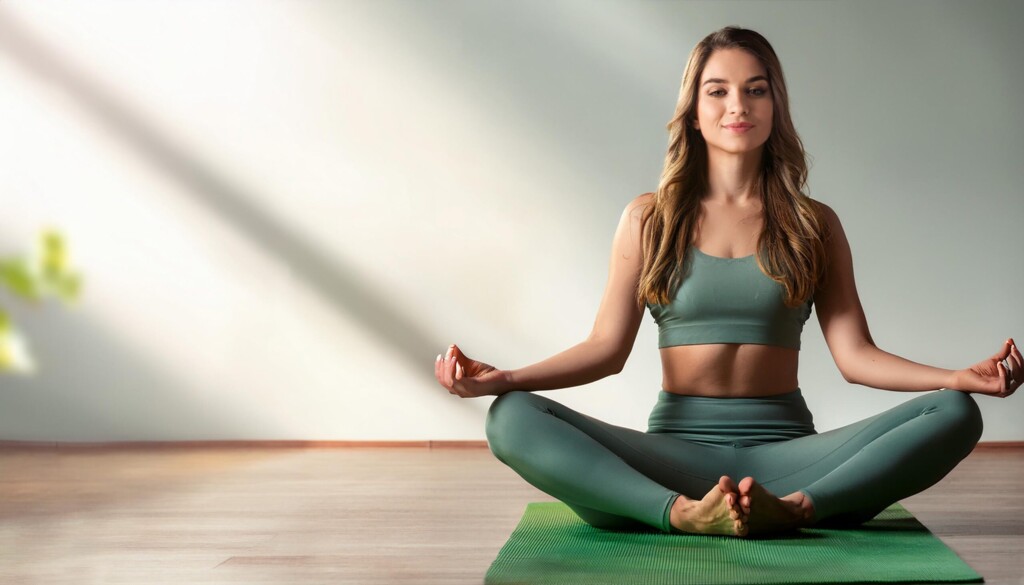
This post explores 9 surprising benefits of butterfly yoga pose, practical guidance, and how you can include it in your routine. We’ll also highlight the best times to practice it, its emotional benefits, and some tips from experienced yoga practitioners.

How to Do Butterfly Pose (Baddha Konasana) Step-by-Step
Doing butterfly pose properly ensures you receive its full benefit while avoiding unnecessary strain. Here’s a quick breakdown:
Step-by-Step Guide:
- Sit with your legs extended on the mat.
- Bend your knees and bring the soles of your feet together.
- Let your knees drop outward like butterfly wings.
- Hold your feet with your hands and gently press your knees toward the ground.
- Sit tall, keeping your spine elongated.
Pro Tip: Don’t force your knees down. Let gravity work gradually over time.
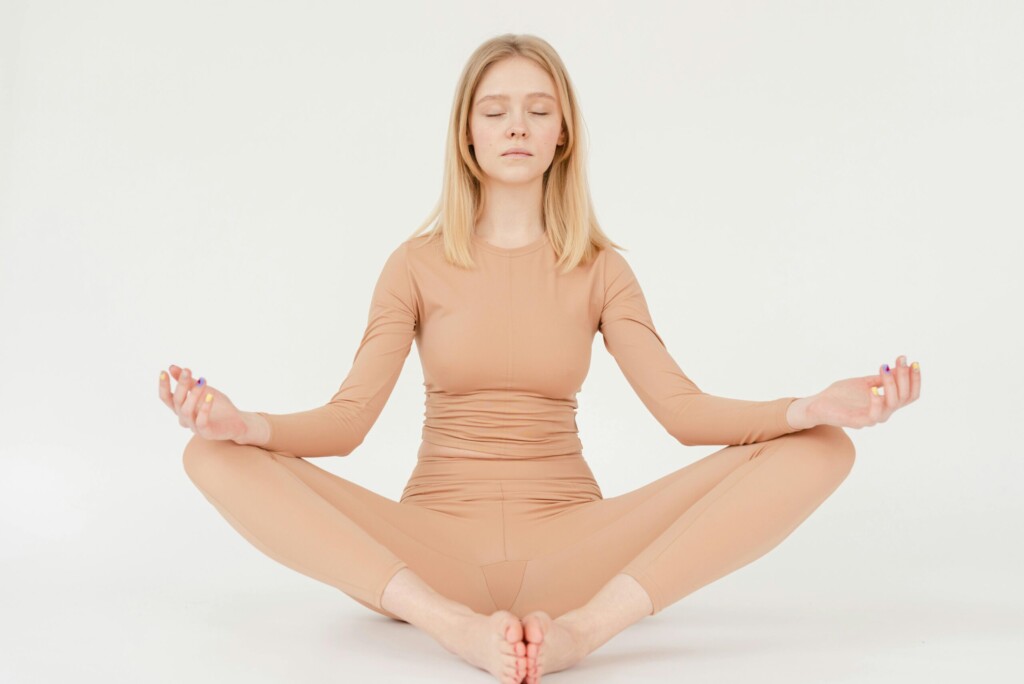
Many yoga practitioners in the U.S. use this pose as a warm-up for deeper hip opener yoga practices or cool-down stretches after intense workouts.
If you’re exploring yoga to improve flexibility, relieve stress, or simply feel more connected to your body, the butterfly yoga pose is just one of many powerful postures worth practicing. To deepen your journey, don’t miss our complete guide on the best yoga poses for every body type and goal — it’s packed with tips, visuals, and beginner-friendly routines to help you thrive.

9 Surprising Benefits of Butterfly Yoga Pose
While most people turn to the butterfly pose for improved flexibility, this seemingly simple posture delivers a wide range of physical, mental, and emotional benefits. Let’s explore the nine surprising advantages you may not expect:
1. Improves Inner Thigh Flexibility
This pose deeply stretches the inner thighs, groin, and hip flexors—areas that often tighten from prolonged sitting or intense workouts. Practicing it regularly can enhance your range of motion and help prevent injuries.
2. Eases Lower Back Pain
By gently releasing tension in the lower body, especially the hips and spine, the butterfly pose may reduce lower back discomfort. It’s often recommended as part of therapeutic yoga routines for desk-bound professionals.
3. Supports Pelvic Health
This pose increases circulation to the pelvic region, which can be beneficial for reproductive health in both men and women. In fact, many prenatal yoga instructors recommend it to prepare the body for childbirth.
4. Encourages Emotional Release
The hips are believed to store emotional tension. This hip opener yoga pose allows emotional blockages to surface and release, promoting mental clarity and calmness.
5. Boosts Circulation
By compressing and releasing muscles in the thighs and groin, butterfly pose encourages blood flow throughout the lower body—an often overlooked but powerful effect of this seated stretch.
6. Enhances Posture Awareness
When done correctly, butterfly pose improves spinal alignment, which in turn helps with posture during your daily life. It teaches core engagement and upper body awareness.
7. Aids Digestion
The gentle abdominal compression caused by this posture may stimulate digestive organs and relieve bloating or mild constipation.
8. Prepares the Body for Meditation
Butterfly pose opens the hips while keeping the spine tall, making it an excellent preparatory pose for longer meditative sitting. It blends physical relaxation with mental alertness.
9. Reduces Stress and Anxiety
As with most grounding yoga postures, butterfly pose encourages deep breathing and nervous system relaxation. Just 5–10 minutes in this posture can significantly lower cortisol levels.
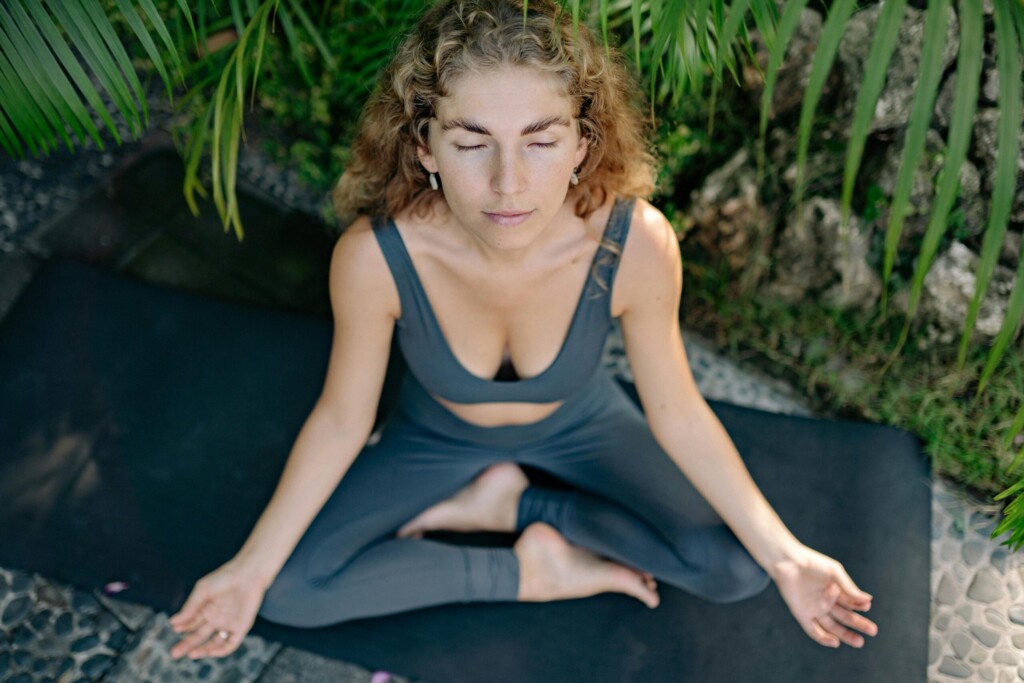

Common Mistakes to Avoid in Butterfly Pose
While butterfly pose is simple, some common mistakes can reduce its effectiveness or cause discomfort. Here’s what to watch out for:
1. Rounding the Spine
Hunching forward to reach your feet compromises your posture. Instead, sit tall and use a cushion or block under your hips if needed.
2. Forcing the Knees Down
This is a major cause of strain. Let gravity do the work gradually—especially if your hips are tight.
3. Holding Your Breath
Always maintain a steady, calm breath. Breathwork enhances the stretch and releases tension from the body.
4. Practicing on a Hard Surface
Always use a yoga mat or padded surface. Sitting directly on a hard floor can irritate the tailbone and hips.
5. Neglecting Supportive Props
Yoga blocks, bolsters, or even folded blankets can help you adjust the pose for comfort and effectiveness—especially for beginners or seniors.
According to Cleveland Clinic, hip-opening poses like Butterfly can relieve tension, improve flexibility, and even support emotional release.
Bonus Tip:
Pregnant women can also benefit from this pose with minor adjustments. Always consult a prenatal yoga instructor before starting.
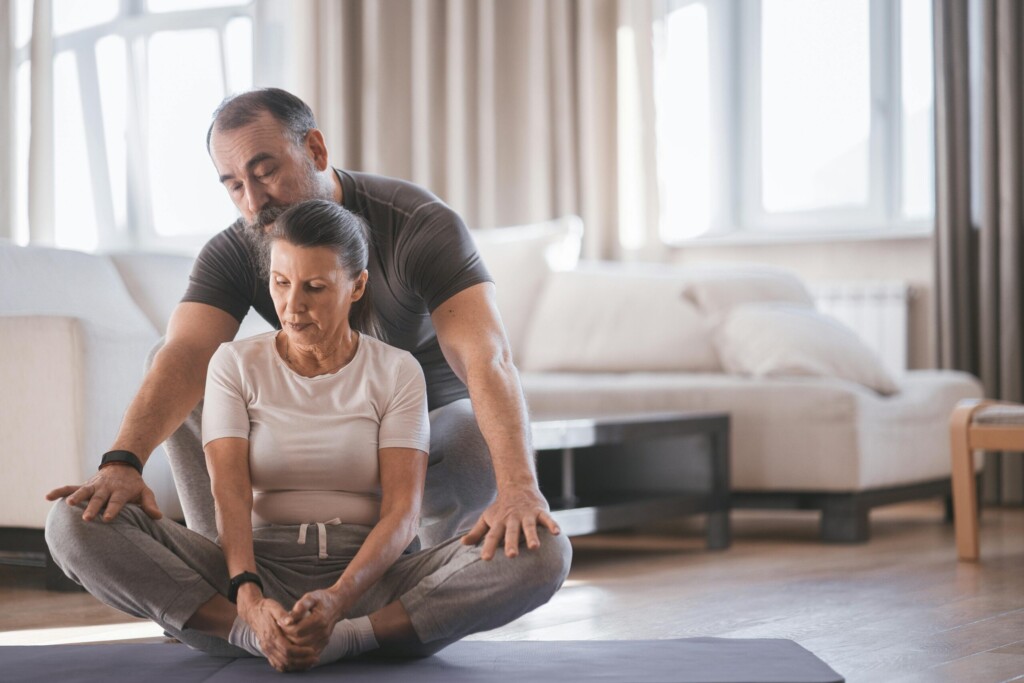
How to Incorporate Butterfly Pose Into Your Routine
1. Daily Morning Routine
Start your day by sitting in butterfly pose for 2–3 minutes. Pair it with light breathwork to awaken the body and mind.
2. Pre or Post-Workout Stretch
Add it before strength workouts or after cardio to open the hips and cool the nervous system.
3. Bedtime Wind-Down
Perform the pose on your bed or a soft mat in the evening to unwind. Light music and dim lighting can enhance its calming effects.
4. Pairing with Other Poses
Pair with poses like seated forward fold, reclined pigeon, or legs-up-the-wall for a full hip-opening sequence.
5. Use in Guided Meditation or Journaling
Butterfly pose is ideal for grounding yourself during breathwork, journaling, or mindfulness practice.
Quick Tips:
- Hold for 3–5 minutes in a restorative version with support
- Add gentle forward folds for deeper release
- Always follow up with a counter pose like child’s pose
Final Thoughts
The butterfly yoga pose is far more than a beginner stretch. It’s a therapeutic tool that can deeply benefit your flexibility, emotional balance, and overall wellness. Whether you’re using it for physical therapy, meditation, or menstrual comfort—this pose belongs in your weekly yoga flow.

FAQ
1. Can beginners do butterfly pose safely?
Yes, beginners can absolutely do butterfly pose safely! It’s one of the best yoga poses for newcomers, as it doesn’t require complex alignment or balance. To make it more comfortable, especially if you’re just starting, try using props like yoga blocks or cushions under your knees for extra support. If you’re feeling a bit tight, go slow and ease into the pose, allowing your body to open up gradually. With consistent practice, you’ll notice increased flexibility and comfort.
2. How long should I hold butterfly pose to see benefits?
When practicing butterfly pose, it’s great to start holding for about 1-2 minutes. As you get more flexible and comfortable with the stretch, try building up to 5+ minutes. This duration gives your body enough time to release tension in your inner thighs, hips, and lower back. The longer you hold the pose, the more you’ll improve your flexibility over time, helping you achieve deeper stretches and a sense of relaxation.
3. Is butterfly pose safe during menstruation?
Yes, butterfly pose can be great for menstrual relief! It helps to open the hips and gently stretch the inner thighs, which can help relieve cramps. If you’re feeling sensitive, it’s best to keep your movements gentle and avoid going into deep forward bends. Instead, focus on a mild stretch to stay comfortable. The pose is excellent for promoting blood flow and reducing tension, especially during that time of the month.
4. Can men benefit from butterfly pose too?
Absolutely! Butterfly pose is often associated with flexibility, but it also offers incredible benefits for men. It promotes hip mobility, helps release tension in the lower back, and supports prostate health by gently stretching the pelvic area. It’s a fantastic pose for anyone looking to improve lower body flexibility, relieve stress, and work on posture. So whether you’re a man or woman, this pose is beneficial for increasing flexibility and releasing tightness in the hips and thighs.
5. What should I do if my knees are very high in butterfly pose?
If your knees are high in butterfly pose, don’t worry, you’re not alone! This is quite common, especially for beginners. To reduce strain on your knees and make the pose more comfortable, try sitting on a cushion or a folded blanket. Elevating your hips can bring your knees closer to the ground, creating a more accessible stretch. The goal is to gently ease into the pose without forcing it, so use props as needed to make the stretch feel more supportive and less intense.
Disclaimer
This blog post is for informational purposes only and does not constitute medical advice. Always consult a qualified healthcare provider before starting any supplement or treatment. This article may contain affiliate links, which means we may earn a small commission (at no extra cost to you) if you make a purchase. We only recommend products we personally trust.


